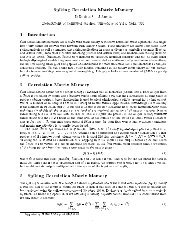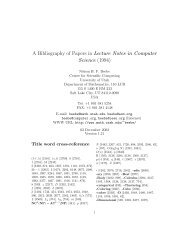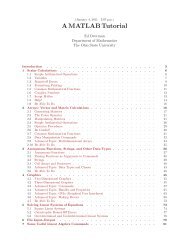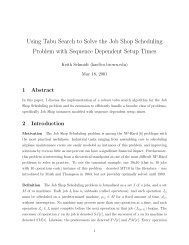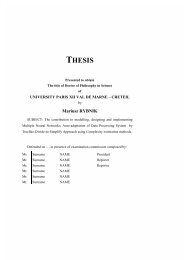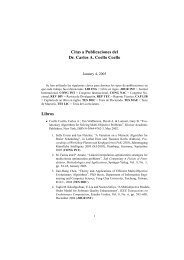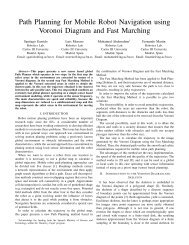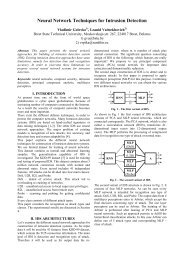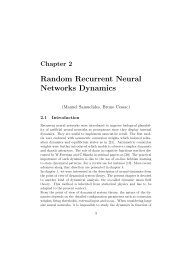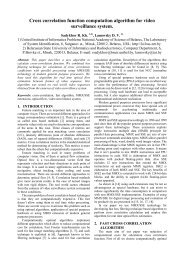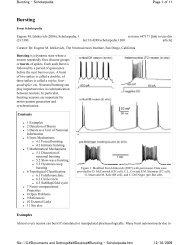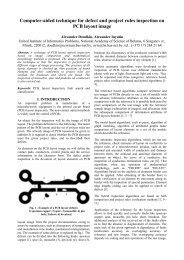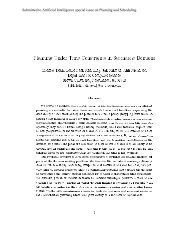NYT-1201: STATE OF THE ART A Thermostat That's Clever, Not ...
NYT-1201: STATE OF THE ART A Thermostat That's Clever, Not ...
NYT-1201: STATE OF THE ART A Thermostat That's Clever, Not ...
Create successful ePaper yourself
Turn your PDF publications into a flip-book with our unique Google optimized e-Paper software.
m now, if the technology proves successful? They w<br />
ould be the sorts of tasks that humans find effort<br />
less and that computers struggle with — the patter<br />
n recognition of seeing and identifying someone, w<br />
alking down a crowded sidewalk without running int<br />
o people, learning from experience. Specifically,<br />
the scientists say, the applications might include<br />
robots that can navigate a battlefield environmen<br />
t and be trained; low-power prosthetic devices tha<br />
t would allow blind people to see; and computerize<br />
d health-care monitors that watch over people in n<br />
ursing homes and send alerts to human workers if a<br />
resident’s behavior suggests illness.<br />
It is an appealing vision, but there are formidabl<br />
e obstacles. The prototype chip has 256 neuron-lik<br />
e nodes, surrounded by more than 262,000 synaptic<br />
memory modules. That is impressive, until one cons<br />
iders that the human brain is estimated to house u<br />
p to 100 billion neurons. In the Almaden research<br />
lab, a computer running the chip has learned to pl<br />
ay the primitive video game Pong, correctly moving<br />
an on-screen paddle to hit a bouncing cursor. It<br />
can also recognize numbers 1 through 10 written by<br />
a person on a digital pad — most of the time. But<br />
the project still has a long way to go.<br />
It is still questionable whether the scientists ca<br />
n successfully assemble large clusters of neuromor<br />
phic chips. And though the intention is for the ma<br />
chines to evolve more from learning than from bein<br />
g programmed, the software that performs that magi<br />
c for any kind of complex task has yet to be writt<br />
en.<br />
The project’s Pentagon sponsor is encouraged. “I’m<br />
surprised that we’re so far along, and I don’t se<br />
e any fundamental reason why it can’t be done,” sa<br />
id Todd Hylton, a program manager.<br />
If it succeeds, the project would seem to make pea<br />
ce with the “airplanes don’t flap their wings” cri



